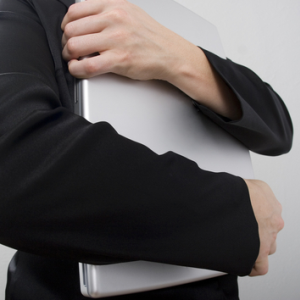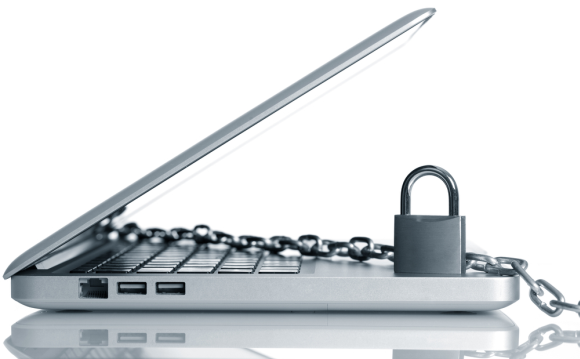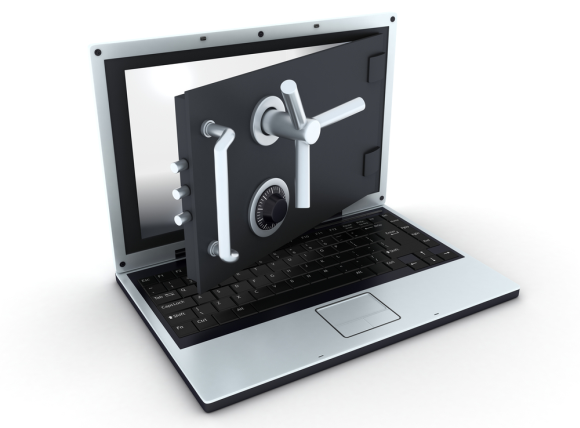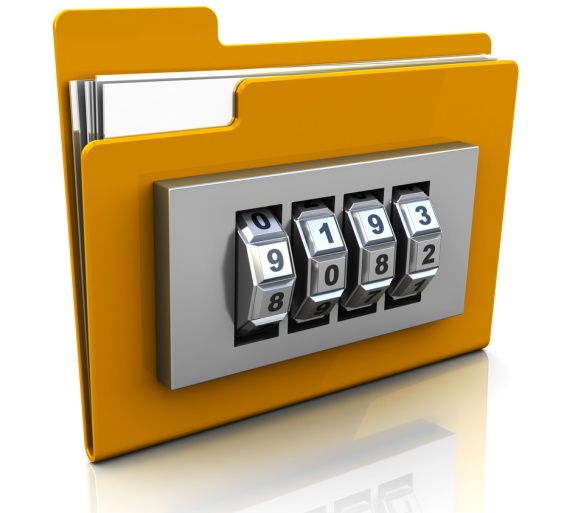Laptops offer great freedom. You can get some work done while traveling, check emails and Skype with friends from the Café, and take digital notes while attending a conference. But all it takes is a moment of inattention, and someone else can take advantage of your laptop's portability.
The great risk that comes with all portable devices is theft. Not only do you risk losing an expensive piece of hardware, a stolen laptop also contains private and potentially confidential data, for example photos, personal data, work emails, and passwords. In this article I have summarized ways how you can protect your laptop from getting stolen or how to prepare it for a case of theft.
Use Locks for Laptop Theft Protection
The first line of defense to prevent unsolicited access to your data is a lock. You are probably reminded of the Kensington Security Slot and Lock and that is indeed something I recommend you to use. However, there are several other ways to lock your laptop, for example using a USB flash drive and software. These locks can trigger an alarm when someone tries to break them, for example by removing the flash drive or by entering a wrong password.
We have covered several such tools in depth. I recommend consulting the following articles:
- LAlarm Laptop Makes Your Laptop Scream When Stolen
- Protect And Track Your Laptop In Case Of Theft with LaptopLock
- How To Set Up An Anti-Theft Alarm On Your Mac Laptop
The setup procedure for Predator, another tool you can use to lock your PC, is described in The Office Worker's Guide to a USB Thumb Drive.
Password Protect All User Accounts
The second line of defense are passwords. Whether you're running Windows, Linux, or OS X, create a password for your user account. Also make sure there are no hidden accounts that remain unprotected, for example the Administrator account on Windows. The following article explains which passwords you need and it will refer you to further material on how to create safe passwords: 3 Default Passwords You Must Change & Why
I realize it is very convenient to store passwords on your laptop and enable the auto login for desktop clients and online accounts. However, I recommend not to store passwords for any accounts that hold sensitive or confidential information, such as bank or email accounts. I also recommend you to use a password-protected password manager to help you mange safe passwords. We have covered the following on MakeUseOf:
- 4 Open Source Password Managers To Keep Your Passwords Safe
- Password Manager Battle Royale: Who Will End Up On Top?
- KeePassX – Secure Password Management For Linux & OS X
Encrypt Sensitive Data
User account passwords are easy to crack. In fact, it's not even necessary to crack them. Someone who has physical access to your laptop can just remove the hard drive and read it externally from another computer. Any data stored on your hard drive is easily accessible, regardless of how strong your user password is. Hence, your best bet is to encrypt data stored on your laptop.
For Windows users I recommend TrueCrypt, a free, open source, and easy to use disk encryption software. Also have a look at the following tools:
- Sync, Backup & Encrypt Your Files With Toucan [Windows & Linux with Wine]
- How To Secure & Encrypt Your Information If Your Laptop Gets Stolen [Mac]
Backup Your Data
Yes, I keep telling you this and it's a mantra worthwhile. Whether or not your laptop gets stolen or your hard drive breaks, it will give you peace of mind. And if the worst happens, it will save you a lot of trouble.
To learn more about backing up your Windows 7 data, I recommend reading the guide The Backup and Restore Guide.
Install Applications to Track Down Your Laptop
Despite all protection in form of locks, passwords, encryption, and backed up data, your laptop can get stolen. Even if all you are losing is a piece of hardware, wouldn't it be great if you could track it down and get it back? To make this possible, you need to prepare your laptop beforehand by installing tools to access the device once the thief uses it to go online.
The following articles will walk you through the process for the respective applications:
And here are two more tools listed in our Directory:
- LockitTight: Helps to Locate Your Stolen Laptop
- FireFound: Locate Your Stolen Computer (Firefox only)
Customize Your Laptop Data and Record Information
Another way of protecting your laptop from accidental removal or theft, is to customize it. Add stickers to the backside of the screen, engrave your laptop, or get a custom paint job. This will make it unique enough to avoid an accidental mix-up and it might also make it difficult to sell and thus less likely to be stolen.
In addition, take photos of your laptop, record any identifiable features, including damage, and note down the serial number. In case your laptop does get stolen, this information can be very valuable in retrieving it.
In a follow-up article due to be published tomorrow, I will share what you can do in case your laptop does get stolen.
Have you ever had a laptop stolen and did you use any of the tracking apps recommended above? Was the police of any help?
Image Credits: bodhihillillustration, Sven Hoppe, Vladru, mmaxer, Matthias Pahl, igorlale






